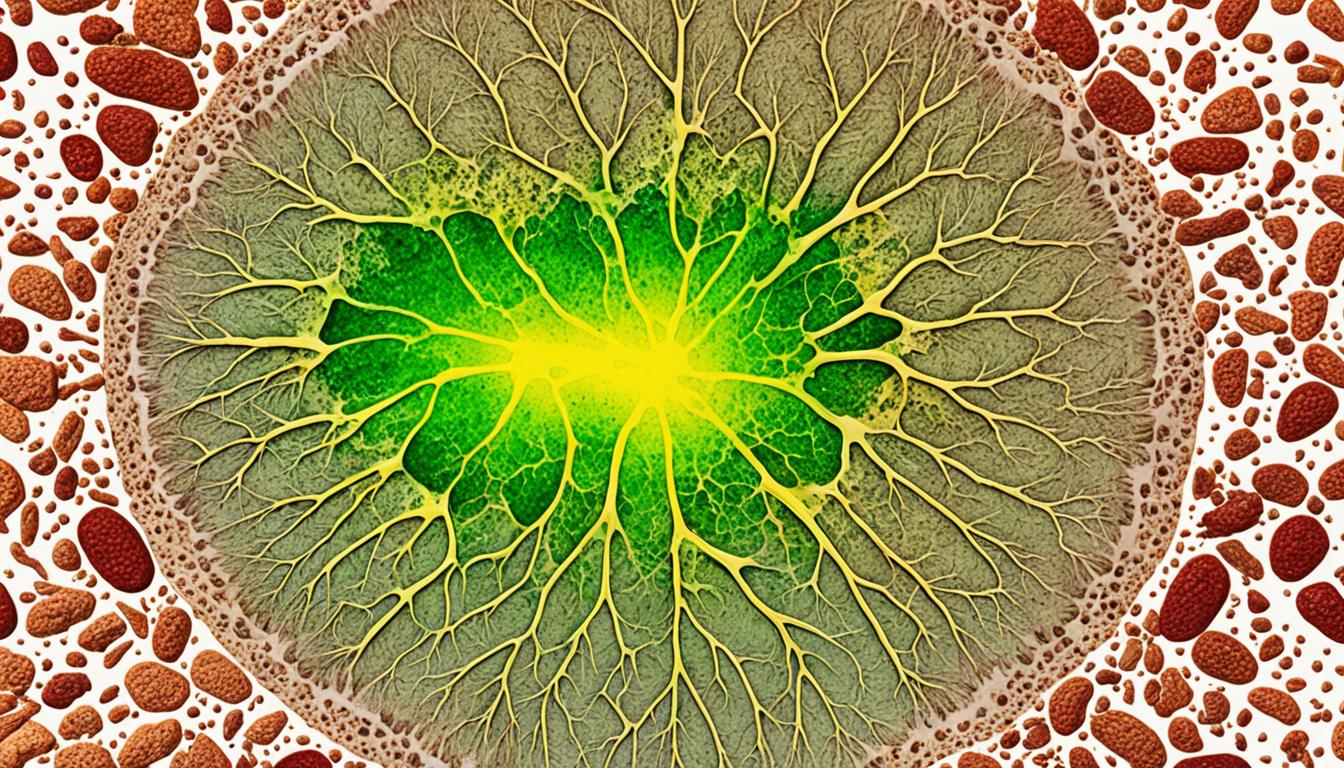Hepatomegaly means the liver is bigger than normal. It can show signs of various liver health problems. These can include issues like viral hepatitis, fatty liver, and cirrhosis. Also, congestive heart failure, some infections, and metabolic problems might add to it.
Someone with hepatomegaly can have belly pain, not want to eat, feel tired, have sore muscles, and their skin or eyes might turn yellow. It’s crucial to figure out why the liver is enlarged. This step is key to deciding how to treat it.
Doctors start with a check-up to feel the liver’s size. They then do blood tests to check how the liver is working and rule out other causes. Often, pictures like from an ultrasound, CT scan, or MRI are needed to see the liver’s actual condition.
Treating a big liver depends on how bad it is and its cause. Mild cases might get better with a healthy diet, no alcohol, and regular exercise. In some cases, the doctor might suggest special drugs to help the liver or reduce swelling.
Key Takeaways:
- Hepatomegaly is the abnormal enlargement of the liver and can be a sign of underlying health conditions.
- Common causes of hepatomegaly include liver diseases such as viral hepatitis, fatty liver, and cirrhosis.
- Symptoms of hepatomegaly include abdominal pain, loss of appetite, fatigue, muscle pain, and jaundice.
- Diagnosis involves a physical examination, blood tests, and imaging tests such as ultrasound, CT scan, or MRI.
- Treatment options may include lifestyle changes, medications, and in severe cases, stem cell therapy.
Common Causes of Hepatomegaly and Splenomegaly
The liver and spleen can get bigger from many different things. Things like hemochromatosis and Wilson’s disease are genetic. They make too much iron be in the liver. When the heart can’t pump blood right, it causes problems in the liver and spleen too.
Cancer types including leukemia, lymphoma, and hepatoblastoma can make these organs grow. Also, thalassemia and similar blood issues can do the same. They make too many or too few red blood cells.
Problems in the liver can also make organs bigger. For example, viral hepatitis and fatty liver disease. They hurt the liver, making it swell up.
Autoimmune diseases, like systemic lupus erythematosus, can cause this as well. They attack the body, causing liver and spleen inflammation.
Treatment and Management
Figuring out why the liver and spleen are big is key. It helps with making the right treatment plan. This might need a look at your health history, a check-up, and special tests.
Hemochromatosis and Wilson’s disease need to lower the iron or copper in the body, respectively. For a weak heart, fixing the heart can make the organs go back to normal size.
How you treat cancer depends on the kind you have and how bad it is. Options include chemo, radiation, surgery, or other special drugs.
To heal blood issues like thalassemia, you might need new blood often or a surgery to fix your cells.
For liver problems, a good diet and avoiding bad habits like drinking alcohol is important. Also, doctors might give you medicine.
When the liver is very sick, you might need new cells put in with a stem cell therapy. This new method helps the liver heal.
| Common Causes of Hepatomegaly and Splenomegaly |
|---|
| Hemochromatosis |
| Wilson’s disease |
| Congestive heart failure |
| Leukemia |
| Lymphoma |
| Thalassemia |
| Hepatoblastoma |
| Viral hepatitis |
| Fatty liver |
| Systemic lupus erythematosus |
Diagnosis and Management of Hepatomegaly
Diagnosing hepatomegaly means checking the liver’s size and health with a physical examination. This process helps understand how serious the problem is and any symptoms it might cause. Blood tests are also done to look deeper into liver health and find out what’s wrong.
To get a clearer picture, the doctor might order imaging tests like ultrasound, CT scan, or MRI. These tests show detailed images of the liver. They help doctors understand its condition and if there are issues.
Treating hepatomegaly depends on its cause. For not-so-bad cases, changing your lifestyle can be the first step. This includes eating well, not drinking alcohol, and staying active. If it’s because of a liver disease or to cut down on swelling, the doctor might give you medications.
If the liver is in bad shape, stem cell therapy might be an option. This treatment aims to repair the liver. It’s a hope for those with a very serious case of hepatomegaly.

